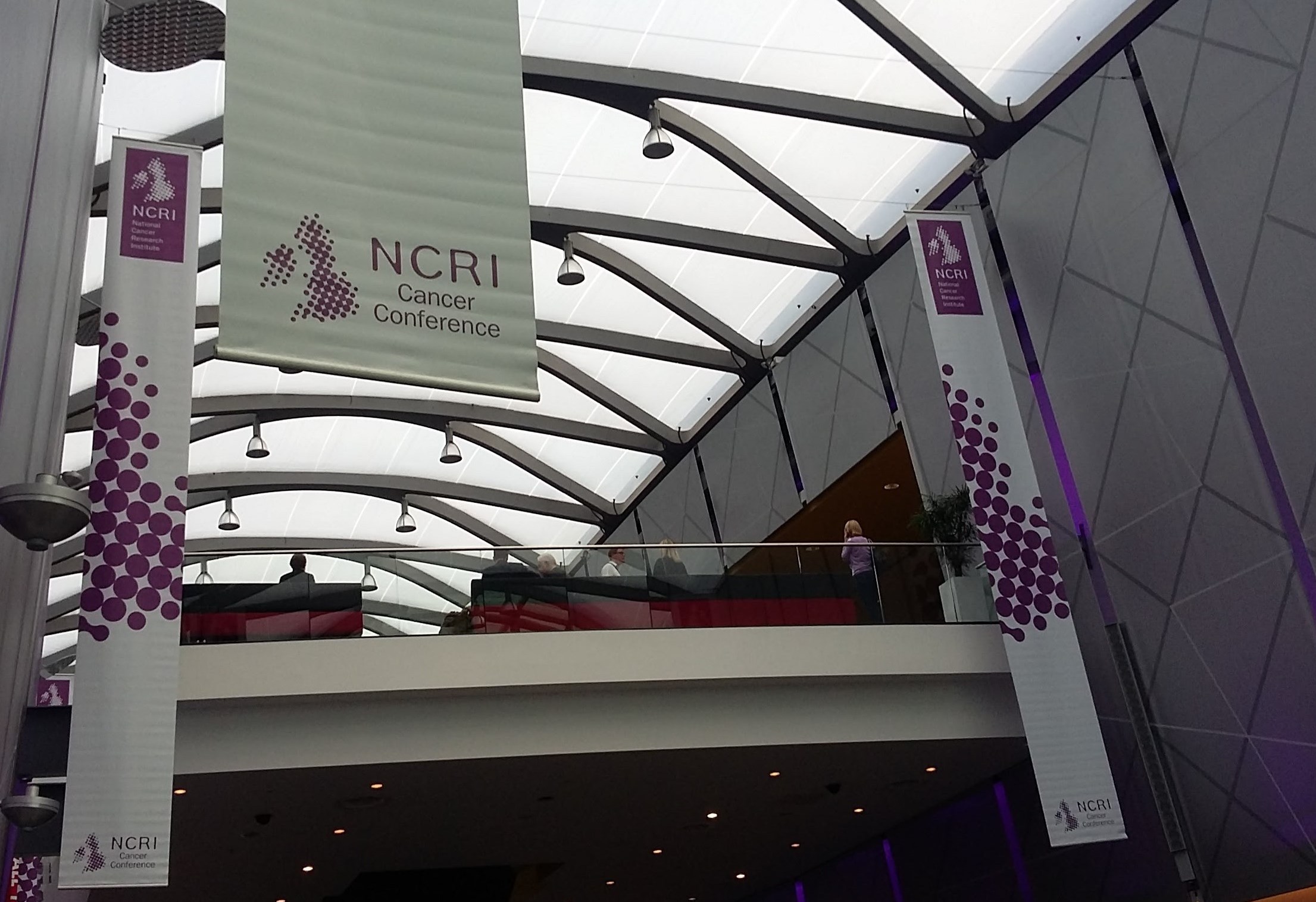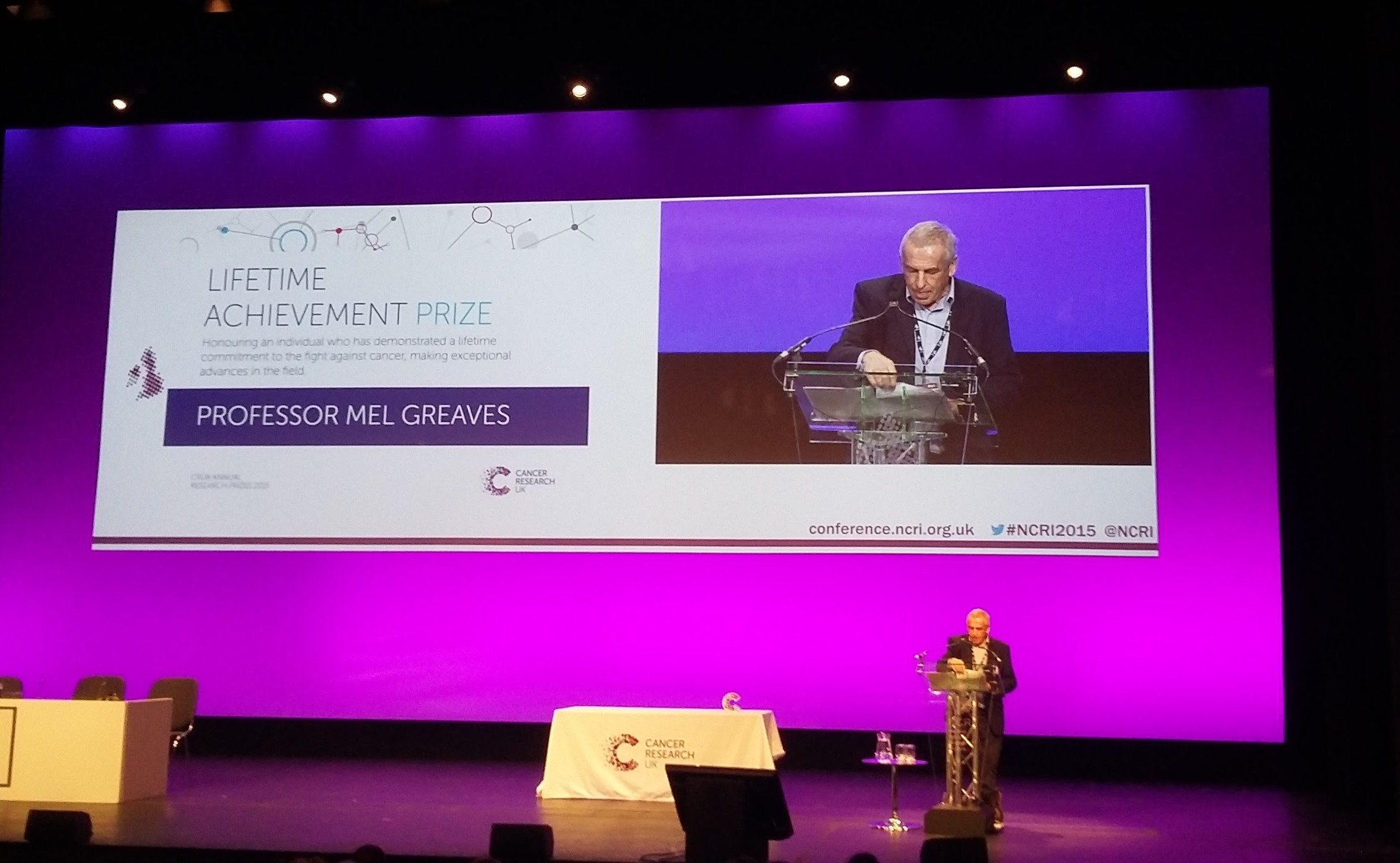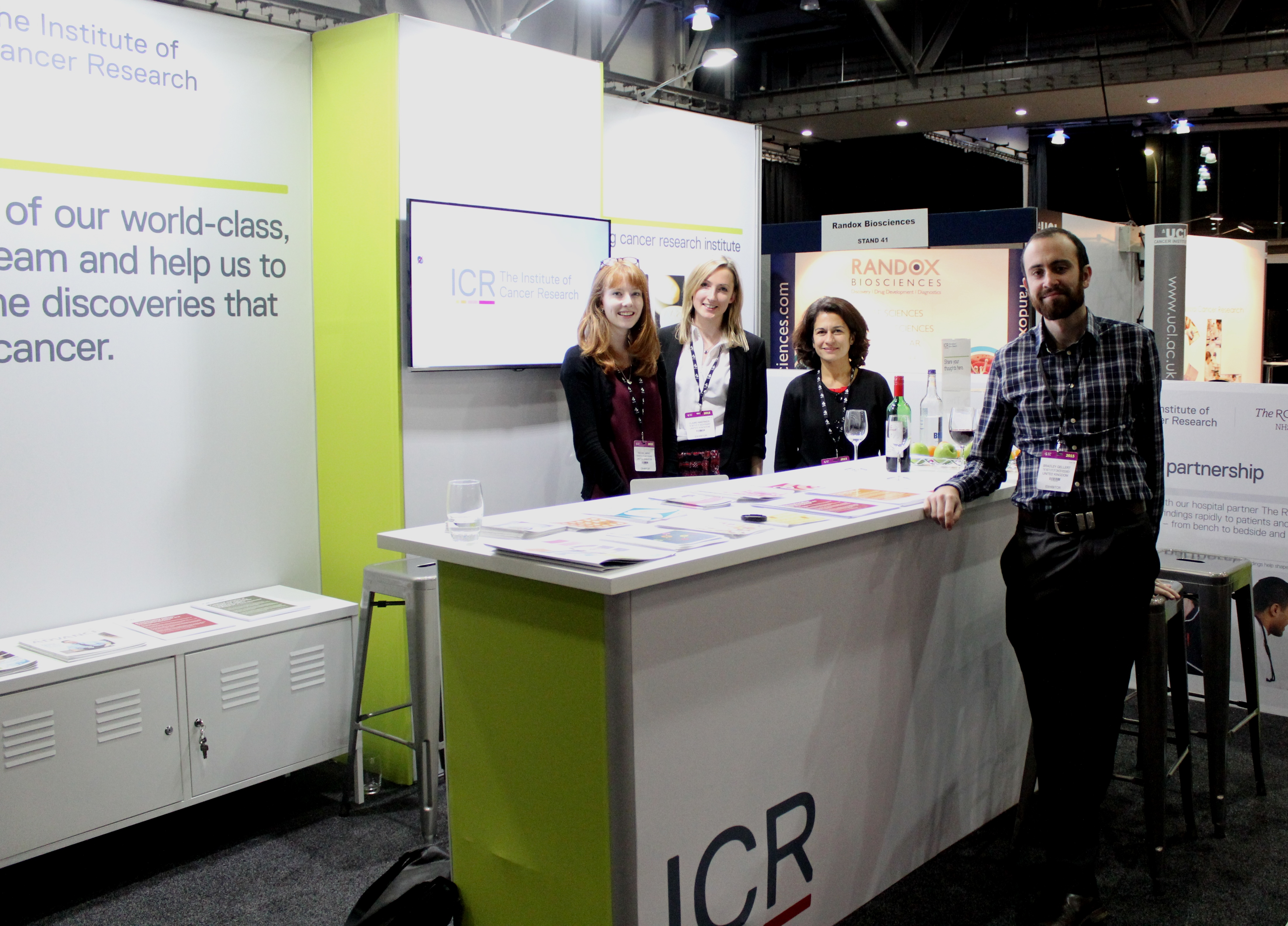It was a foggy start to the NCRI conference this year, but the mist soon lifted and we began to hear some fascinating insights from scientists and clinicians ranging across the breadth of cancer research. I thought I would pick out some of the key take home-messages and highlights from this very lively and engaging conference.
There was no doubt that immunotherapy was a hot topic at the NCRI conference this year. In the words of Professor Adrian Hayday, who opened the first immunotherapy session: “Immunotherapy has made it to the big room at last.” We are still figuring out how immunotherapies work, but we are slowly unravelling the mysteries – and just beginning to realise the potential – of this exciting class of treatment. Using immunotherapy in combination with other therapies, and targeting treatment at those patients most likely to benefit, are key focuses of the latest research.
Big data emerged as another major theme. Recording patient data, such as if the patient is experiencing pain, is routine in clinical trials. But now there is a push to collect these types of data within routine care. If we started collecting these datasets, researchers could see in detail what the patient is experiencing across the full course of their treatment. With the drive for greater access to data comes responsibility, and there is a need to address concerns among the public and the media about the use of data and its collection within the NHS.
Heterogeneity in cancer continues to pose a massive challenge, particularly in driving drug resistance. But there is a worldwide effort to hurdle this barrier through mapping out evolutionary cancer pathways that contribute to resistance, and we continue to explore using combinations of drugs to block off the pathways cancer cells use to evade treatment.

It was fantastic to get the opportunity to hear so many of our own researchers here at The Institute of Cancer Research in London present their groundbreaking work. Dr Emma Hall talked about the results of the major CHHiP trial, showing the effectiveness of using a modern type of radiotherapy in higher doses over fewer hospital visits than is currently recommended on the NHS. It was good to see the media picking up on the story.
And finally, it was a real privilege to see some of our most esteemed ICR colleagues receive accolades for their contribution to cancer research. Described as “a pioneer in the field” by Cancer Research UK’s Professor Nic Jones, Professor Mel Greaves won the charity’s Lifetime Achievement Award, and marked the occasion with an inspirational overview of his 40-year career in cancer research. Professor Greaves’s leukaemia research has changed how the disease is treated, and has had a profound impact on how we conduct cancer research today. Dr Chris Bakal from the ICR also received the Future Leaders Prize, for his highly innovative approach to research into cancer cell biology. I caught up with the ICR’s Professor Nandita deSouza who said: “Mel’s lecture was a real highlight for me. It was riveting and was delivered with his usual incisive clarity. A fantastic achievement.”

As the conference closes until next year, the debate, and the relentless progress in cancer research, continues. We hope you have enjoyed hearing our updates so far, but do look out for more from us in the coming week.

comments powered by